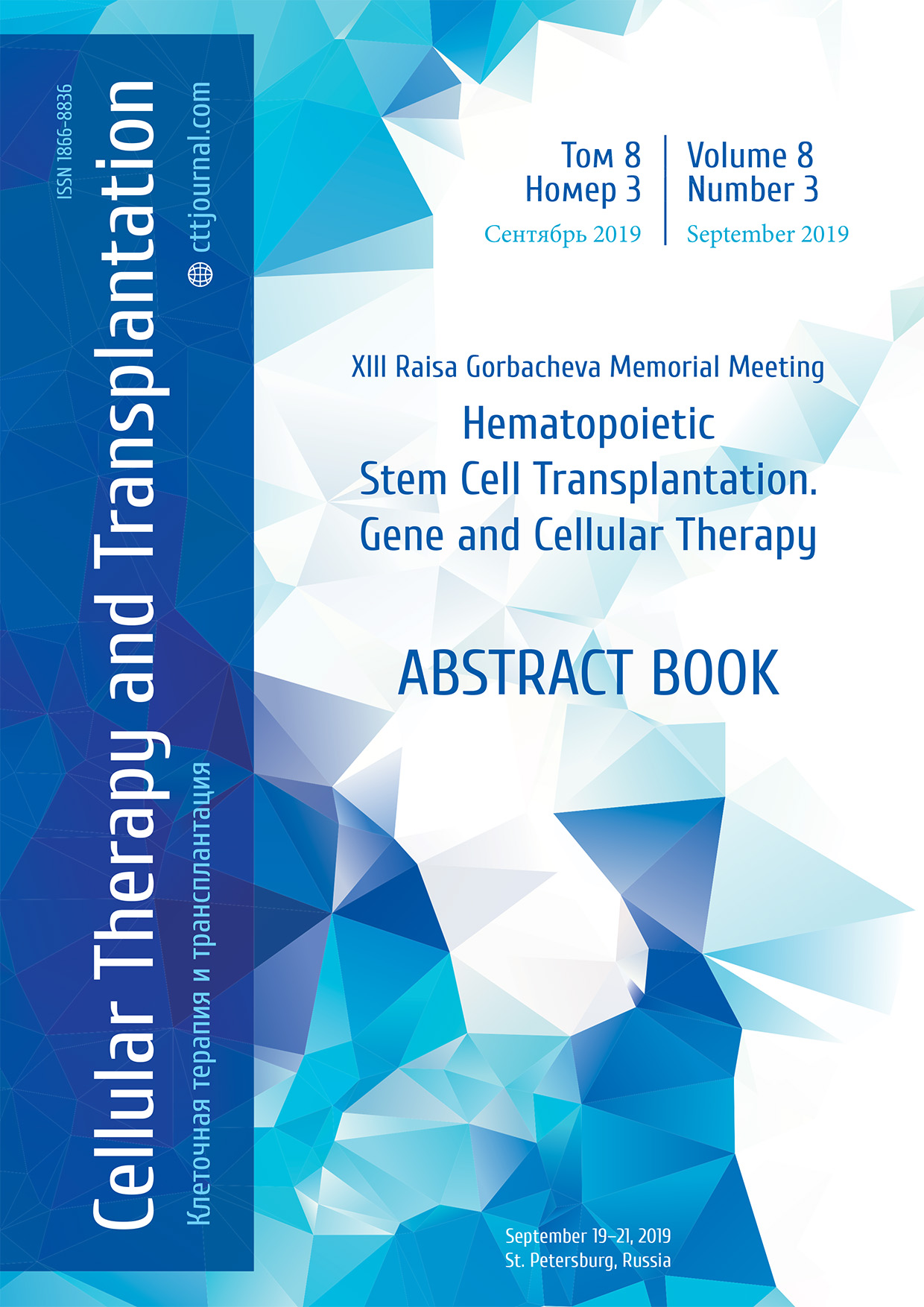Immunochemotherapy in relapsed or refractory B-cell non-Hodgkin lymphoma
Olesya G. Smykova, Kirill V. Lepik, Elena V. Kondakova, Yury R. Zalyalov, Lilia V. Stelmakh, Elena I. Darskaya, Natalia B. Mikhailova, Boris V. Afanasyev
Raisa Gorbacheva Memorial Research Institute of Pediatric Oncology, Hematology and Transplantation, Pavlov First Saint Petersburg State Medical University, St. Petersburg, Russia
Contact: Dr. Olesya G. Smykova
E-mail: olesya.gen@gmail.com
Summary
The outcome of patients with relapsed or refractory B-cell non-Hodgkin lymphoma (r/r NHL) remains dismal and therapeutic options for those patients are limited. Immunochemotherapy including nivolumab-based regimens and inotuzumab ozogamicin may be promising treatment for this group of patients.
Patients and methods
We analyzed clinical data of patients with r/r NHL (n=37) including 20 cases with diffuse large B-cell lymphoma (DLBCL), 13 patients with primary mediastinal B-cell lymphoma (PMBCL), and 4 cases of follicular lymphoma (FL). Their median age was 39 (range, 18–64) years. Most patients (n=29, 78%) had primary chemoresistant disease, the rest patients (n=6, 22%) had a relapse. The median of lines of prior therapy was 4 (range, 2-7) lines. Among this patients, n=23 received 1 to 3 cycles of immunochemotherapy with nivolumab, bendamustine, gemcitabine and rituximab, within the frame of BeGeRN sudy (NCT03259529), and 14 patients received 1 to 3 cycles of inotuzumab ozogamicin (IO) treatment.
Results
At the median follow-up of 16 months (2 to 23), an objective response (OR) after BeGeRN treatment was noted in 12 patients (52%), with complete response (CR), and partial response (PR) observed in 7 (30%) and 5 (22%) patients, respectively. Two responding patients underwent autologous HSCT, and two other responding patients received allogeneic hematopoietic stem cells transplantation (allo-HSCT). Median duration of response (DOR) for all 12 patients with OR was 5 months (range, 2 to 23+). Among eight patients who achieved OR without HSCT, only 3 remain alive in remission. Two patients who received auto-HSCT had a relapse. One patient improved the response after allo-HSCT from PR to CR, and the two patients with allo-HSCT remain in CR with no signs of GVHD (for 13 and 15 months). The probabilities of 1-year OS and PFS rates were 54% and 30%, respectively. The regimen was well tolerated, the most common adverse events were hematological toxicity and 1 patient (4%) developed autoimmune cytopenia. Among 14 patients receiving IO, OR was observed in n=6 (43%) patients, CR and PR were registered in 2 (14%) and 4 (29%) patients, respectively. Median DOR for all 6 patients with OR was 2 months (range, 2 to 45). One responding patient underwent allo-HSCT and remains in CR (12 months). The probabilities of 1-year OS and PFS rates were 52% and 21%, respectively. The regimen was well tolerated, the most common adverse events were hematological toxicity, elevated transaminases, and 1 patient (7%) developed veno-occlusive disease.
Conclusions
Immunochemotherapy with nivolumab-based regimens or IO has acceptable toxicity and can lead to an objective response in patients with r/r NHL. However, durability of response to therapy is not long, and consolidation with allo-HSCT is needed.
Keywords
B-cell non-Hodgkin lymphoma, nivolumab, inotuzumab ozogamicin.


